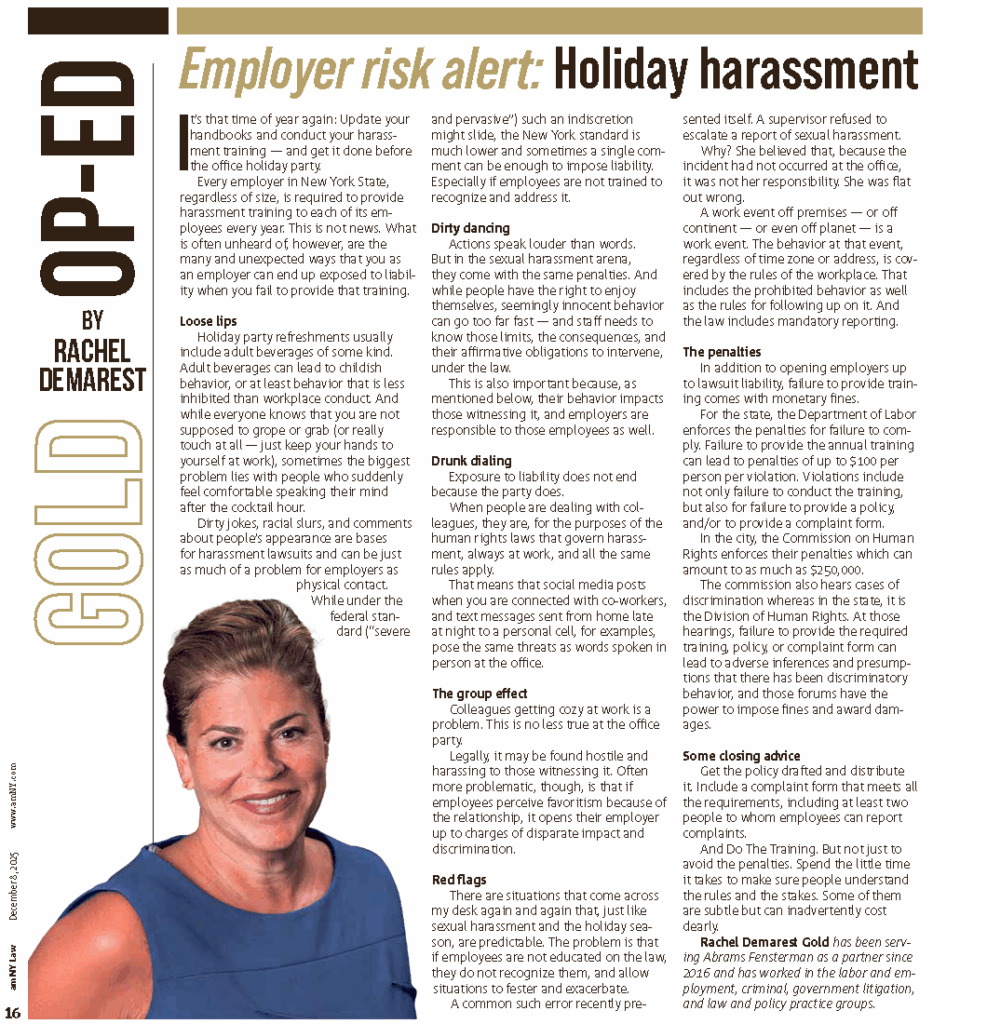Burden of proof is key in every legal proceeding. The attorney needs to know who has the burden of proof and what is the burden of proof. In a criminal proceeding, for example, the state has the burden of proving that the defendant is guilty beyond a reasonable doubt. So what is the burden of proof at a Medicaid Managed Care Fair Hearing, and who has to meet that burden of proof?
Who Has the Burden of Proof?
As a general rule, when the issue that is being adjudicated at the hearing is the propriety of a managed care plan’s reduction, termination, or suspension of a previously authorized service, the managed care plan bears the burden of proof at the Fair Hearing. In contrast, when the issue for the hearing is the plan’s denial of a request for a new service, the burden rests with the member.
Regardless of these general rules, the managed care plan always has the burden of proving that it issued a timely and adequate notice of its determination. This means that a member who could not meet their burden of proving that a denial of a request for a new service was incorrect on the merits could still win the hearing if the plan failed to issue timely and adequate notice of the denial.
What is the Burden of Proof?
If the burden of proof rests with the managed care plan, the plan’s Fair Hearing Representative must prove that its determination complied with all governing rules and regulations. If the burden of proof rests with the member, the member must prove that the plan’s determination violated the governing rules and regulations.
Examples
Discontinuance of previously authorized services
In this example, the Medicaid Managed Care (MMC) plan bears the burden of proof. Accordingly, the Hearing Office will initially question the MMC’s Fair Hearing Representative. Given the primacy of proper notice, the Hearing Officer’s first request will likely be to produce a copy of the plan’s notice of discontinuance. Assuming the MMC’s Representative can produce a compliant notice, the Hearing Office will then proceed to take into evidence documentation and testimony that goes to the merits of the discontinuance. If the determination is based on medical necessity, for example, the medical records on which the determination was based, as well as a copy of the relevant medical standards used to make the determination, would have to be presented. Since the burden rests entirely with the plan, the member need not say or do anything at the hearing.
Denial of request for increased services
Here, even though the burden of proof is on the member, the Hearing Officer’s first question will still probably be to request a copy of the MMC’s notice of decision. If no satisfactory notice is produced, the Hearing Office can avoid an adjudication of the underlying issues and make a decision on the notice issue alone. If, however, the denial was properly noticed, the burden of proof going forward rests solidly on the member. Specifically, the member must produce evidence establishing his or her entitlement to coverage of the additional services. This evidence can be in the form of a doctor’s letter, a family member’s testimony, or medical records spanning several months. The Hearing Officer will then afford the MMC’s Fair Hearing Representative (or the Representative’s medical expert who can speak to medical necessity) an opportunity to respond to the member’s evidence. Unlike the example above where the MMC bears the burden of proof and the member can remain silent and still win, even if the member bears the burden of proof the MMC’s Representative should be armed with documentation supporting its decision. Failure to mount a defense of it actions will seriously compromise the MMC’s position.
Conclusion
Whether it’s producing a sufficient notice, justifying a reduction in covered care, or defending a denial of new services, a Medicaid Managed Care plan’s Representative must always be cognizant of who needs to prove what in order to win a Fair Hearing.
Abrams Fensterman, LLP has experience defending managed care decisions at Fair Hearings and is available to assist our Medicaid Managed Care clients by providing Fair Hearing training and/or appearing at Fair Hearings on behalf of the managed care plan.





